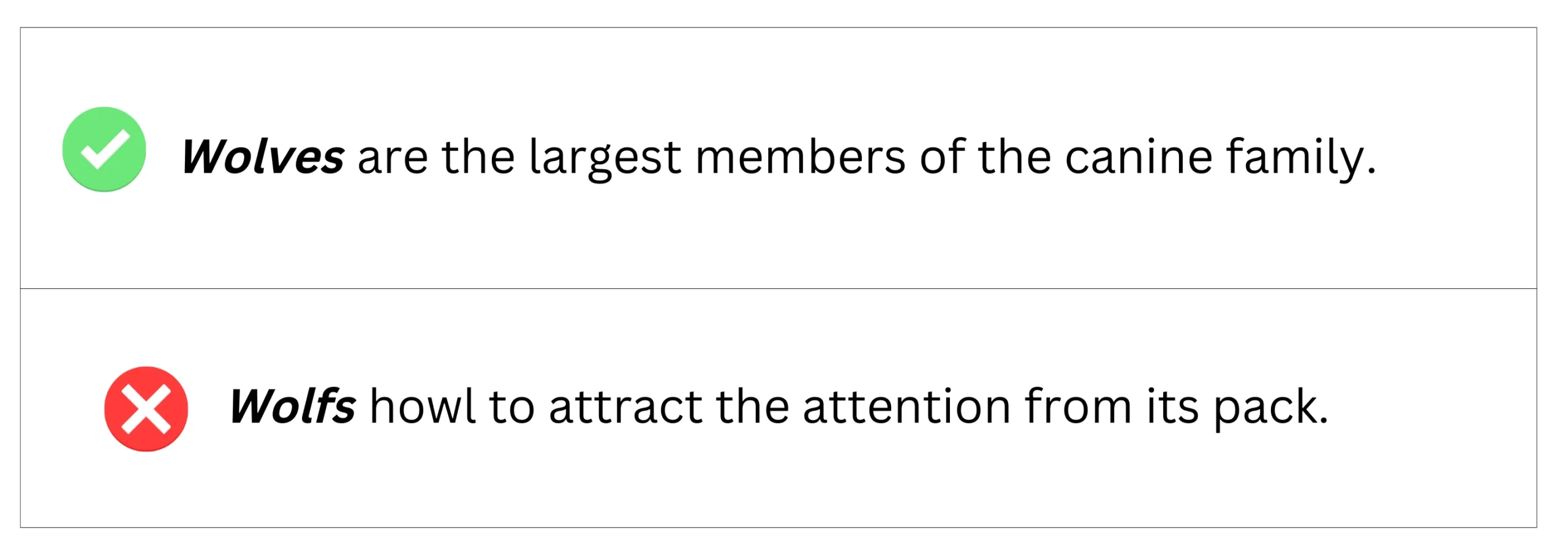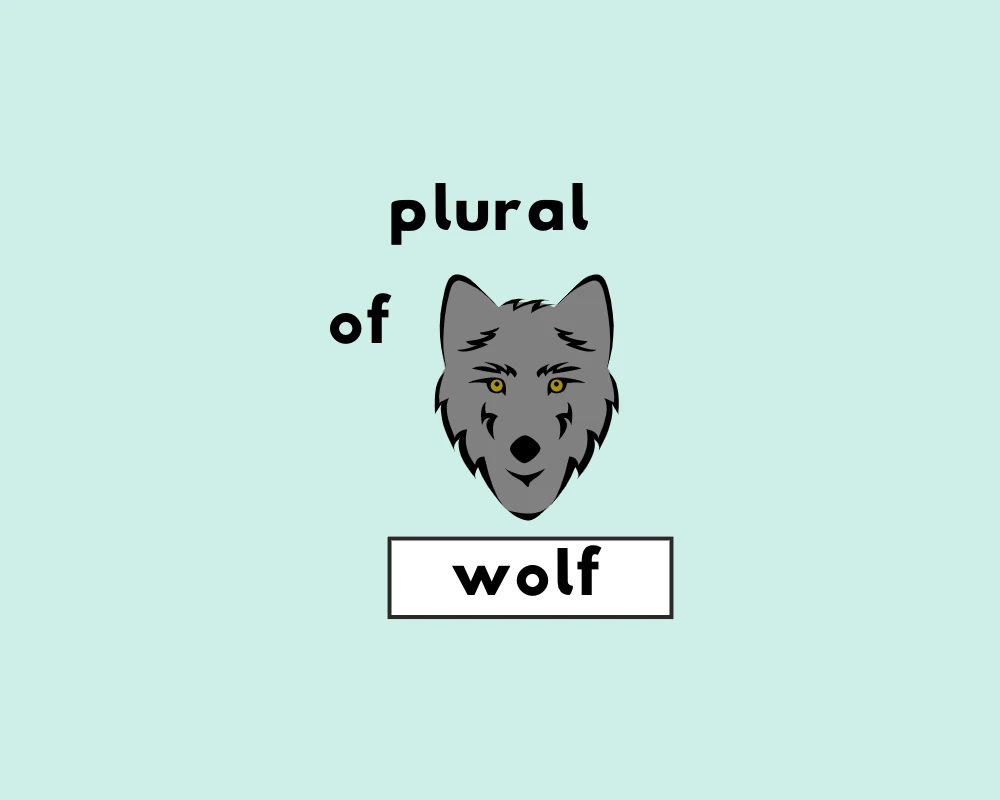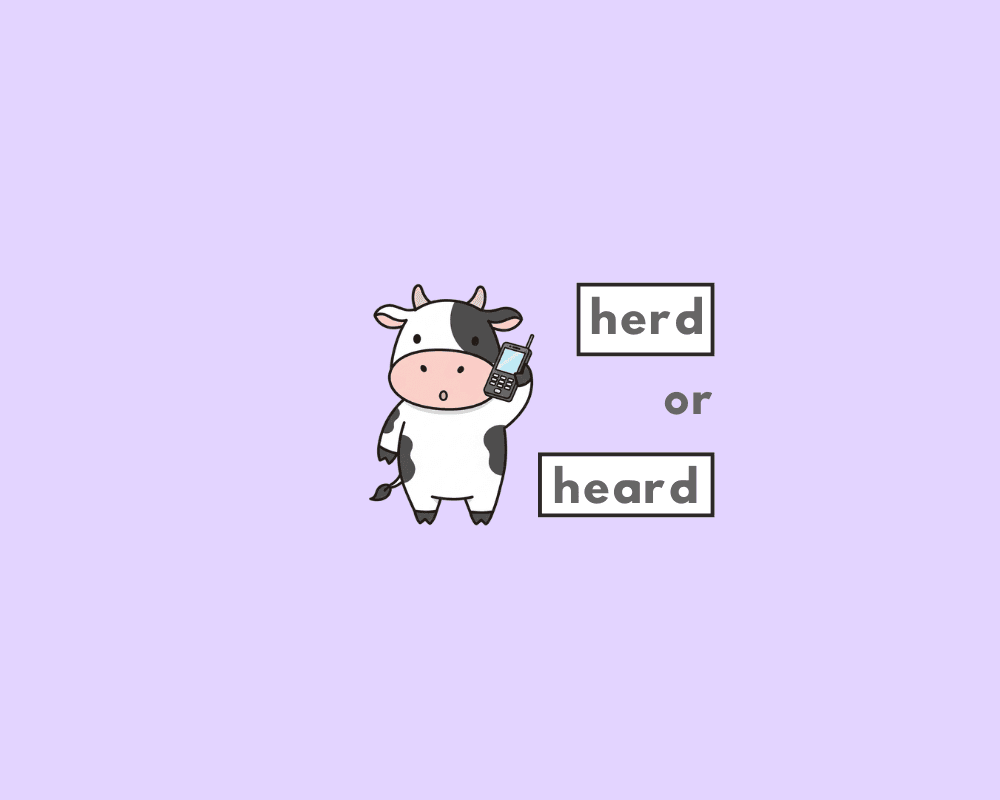What’s the plural of “wolf”?

There were several wolves howling in the distance.
The farmer worried about wolfs attacking his livestock.
The plural of wolf is wolves. English is weird; wolf derives from the German, which may have some part in explaining why it’s irregular (regular plural nouns in English end in -s/-es.) Let’s learn more about this in the next sections.
What’s the singular of wolf?
It’s wolf, as in, ‘he was a lone wolf‘.
What’s a wolf? Are wolves the same as foxes or coyotes?
A wolf is defined in the Brittanica Encyclopedia as:
Any of two species of wild doglike carnivores. The gray, or timber, wolf (Canis lupus) is the better known. It is the largest non-domestic member of the dog family (Canidae) and inhabits vast areas of the Northern Hemisphere.
Irregular plural nouns that end in -f/fe and -ves
Wolves is an irregular plural noun that does not end in the regular -s/-es that regular plural noun forms take. Wolfs is often confused with wolves; likely for the exact reason that the plural of wolf would be wolfs if English attempted to be consistent as a language. This is not the case, and though wolves is irregular, as you’ll see, as a plural noun, it’s not that irregular. See these other similar-sounding irregular nouns in English that end in -f/fe, and modify to –ves as a plural:
| Singular | Plural |
|---|---|
| knife | knives |
| life | lives |
| wife | wives |
| shelf | shelves |
| self | selves |
| half | halves |
| wolf | wolves |
To remember the plural of “wolf,” associate it with the sound “oo” – wolves howl with a long “oo” sound, unlike the short “o” in “wolfs.”
Examples of “wolf” and “wolves” in sentences
| Sentences with “wolf” | Sentences with “wolves” |
|---|---|
|
He watched the wolf disappear into the tall grass. It was a wolf howling at the full moon. He turned out to be a wolf in sheep’s clothing. |
One must howl with the wolves. Some of the wolves had interbred with domestic dogs. They heard wolves howling in the distance. |
Phrases with the word “wolf”
| Phrase | Meaning |
|---|---|
| a wolf in sheep’s clothing | said of something that appears harmless but is in fact dangerous |
| thrown to the wolves | when you’re left to deal with a difficult situation on your own unexpectedly |
| keep the wolf from the door | to prevent starvation or dire poverty |
| a lone wolf | said of someone that enjoys solitude |
| the boy who cried wolf | to raise a false alarm repeatedly, resulting in disbelief when a real emergency occurs |
Origin of the word “wolf”
“Old English wulf “wolf, wolfish person, devil,” from Proto-Germanic wulfaz* (source also of Old Saxon wulf, Old Norse ulfr, Old Frisian, Dutch, Old High German, German wolf, Gothic wulfs), from PIE root wlkwo–“wolf”.
Practice: “Wolf”, plural vs. singular
A pack of ______ could be heard howling at the moon.
The lone ______ tracked its prey through the snow.
The story of the boy who cried ______ is a famous fable.
The documentary showed how ______ hunt together as a team.
He was a ______ in sheep’s clothing, deceiving everyone he met.
FAQs
What is the plural of “wolf”?
+
Is “wolfs” the correct plural form?
+
Why is “wolves” an irregular plural?
+
Are there other English words like “wolf”?
+
How do you use “wolves” in a sentence?
+
Sources
-
Definition of wolf.
-
The origin of wolf.
-
Brittanica Encyclopedia: wolf.
Yash, D. "How to Use Wolf Plural (Explained, Examples & Worksheet)." Grammarflex, Sep 28, 2025, https://grammarflex.com/wolf-plural/.








